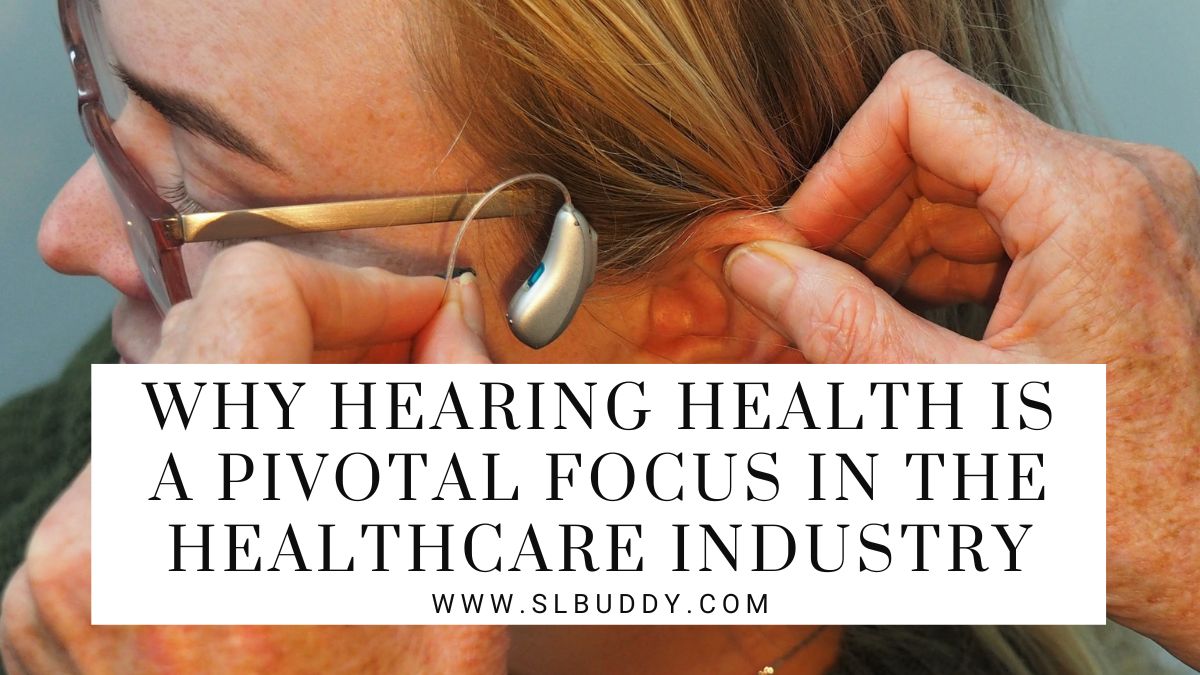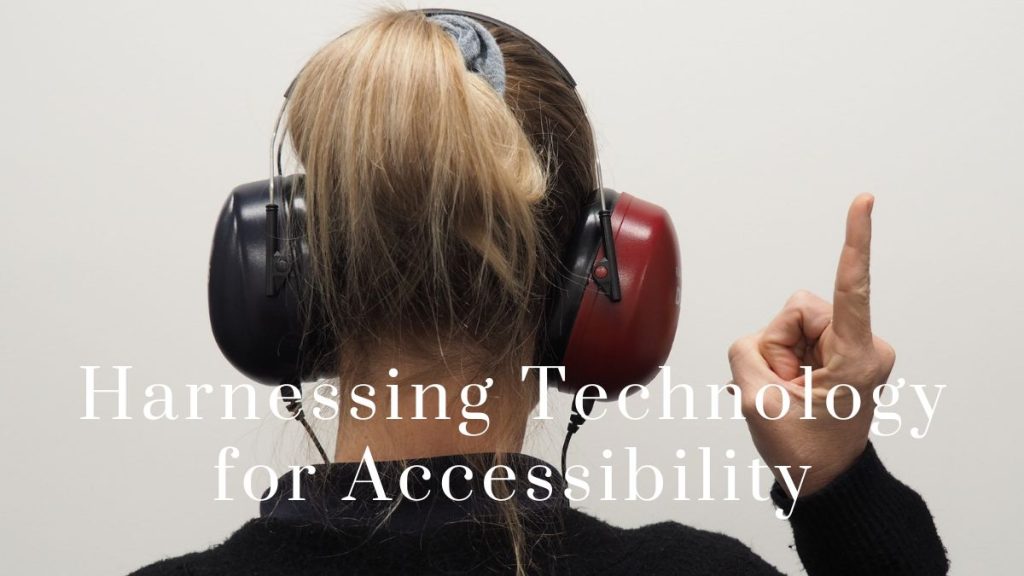
In the vast landscape of healthcare, one aspect often overlooked is hearing health. It’s a topic that doesn’t always command the same attention as heart health or mental well-being, yet it is equally pivotal.
Our ability to hear shapes our connection to the world around us, impacting our communication, emotional well-being, and overall quality of life.
In recent years, the healthcare industry has begun to recognize the profound significance of hearing health.
This article explores why hearing health has become a pivotal focus in the healthcare industry, shedding light on the multifaceted reasons that make it an essential area of concern.
Unlocking the Emotional World
Hearing loss doesn’t merely affect one’s ability to perceive sound; it has profound emotional and social ramifications.
Imagine feeling isolated at family gatherings, unable to participate in conversations or hear your loved ones’ laughter.
For millions, this is a daily reality. Hearing loss often leads to feelings of loneliness, anxiety, and depression, significantly impacting mental health.
The Economic Burden
Beyond the personal toll, hearing loss exerts a substantial economic burden.
According to the World Health Organization (WHO), unaddressed hearing loss costs the global economy an estimated $750 billion annually.
This cost encompasses healthcare expenses, lost productivity, and educational setbacks.
By recognizing the emotional and economic implications of hearing loss, the healthcare industry is increasingly motivated to prioritize hearing health.
The Brain’s Symphony
Hearing is a complex cognitive process that engages various regions of the brain.
It requires the brain to rapidly process and interpret auditory signals, allowing us to comprehend speech, appreciate music, and navigate our environment.
Recent research has established a strong link between hearing health and cognitive function, particularly in older adults.
The Dementia Connection
Studies have shown that untreated hearing loss can accelerate cognitive decline and increase the risk of developing dementia.
The exact mechanisms are still under investigation, but it is thought that the cognitive load of struggling to hear and make sense of sounds may divert resources away from other cognitive functions.
This connection between hearing health and cognitive well-being has sparked a growing interest in early intervention and comprehensive hearing care within the healthcare industry.
Addressing Comorbidity
Healthcare is shifting towards a more holistic approach, recognizing that various aspects of well-being are interconnected. Hearing health is no exception.
Many individuals with hearing loss also suffer from other chronic conditions, such as diabetes, cardiovascular disease, and depression.
By addressing hearing health as an integral component of holistic care, healthcare providers can better manage comorbidities and improve overall patient outcomes.
Empowering Patients
Moreover, focusing on hearing health empowers patients to take control of their well-being. Routine hearing assessments can detect issues early, allowing for timely intervention.
Informed patients are better equipped to make decisions about hearing aids, cochlear implants, or other assistive devices that can dramatically enhance their quality of life.
Harnessing Technology for Accessibility
In the era of digital healthcare, accessibility has become a cornerstone of healthcare initiatives.
Recognizing the need for convenient hearing assessments, many reputable websites offer free online hearing tests.
This user-friendly hearing test at hear.com and any other reputable websites allows individuals to gauge their hearing health from the comfort of their homes.
While they may not replace a comprehensive audiological evaluation, these online tests serve as valuable tools for early detection and awareness, aligning with the broader healthcare industry’s commitment to proactive and holistic care.
Embracing technology to promote accessibility in hearing health exemplifies the industry’s dedication to ensuring that everyone, regardless of their circumstances, can take proactive steps toward preserving their hearing.

Advancements in Hearing Aids
One of the driving forces behind the increased focus on hearing health is the remarkable advancements in hearing aid technology.
Modern hearing aids are far from the bulky, conspicuous devices of the past. They are discreet, adaptive, and capable of filtering out background noise, providing wearers with a more natural listening experience.
These innovations have made hearing aids more accessible and appealing to a broader demographic, further emphasizing the importance of addressing hearing health in healthcare.
Telehealth and Audiology Services
The digital age has ushered in an era of telehealth, making audiology services more accessible than ever.
Patients can now connect with audiologists remotely, facilitating hearing assessments, consultations, and even adjustments to their hearing devices from the comfort of their homes.
This convenience has not only improved patient access to care but has also reduced barriers, such as travel distance, that might have prevented individuals from seeking help for their hearing issues.
The Silver Tsunami
As the global population ages, the prevalence of age-related hearing loss is on the rise.
The World Health Organization estimates that by 2050, over 900 million people worldwide will be aged 65 or older, many of whom will experience some degree of hearing loss.
This demographic shift is amplifying the importance of hearing health, as healthcare systems grapple with the need to provide comprehensive care to an aging population.
Preventative Care and Education
Recognizing the impending “silver tsunami,” healthcare professionals are increasingly focused on preventative care and education.
Encouraging individuals to protect their hearing through measures like wearing ear protection in noisy environments and limiting exposure to loud sounds can help reduce the prevalence of hearing loss.
Education about the signs of hearing loss and the importance of early intervention is crucial in ensuring that older adults receive the care they need to maintain their hearing health.
Addressing Hearing Disparities
Hearing health is not just a concern in developed countries; it’s a global issue. In low-income and middle-income countries, access to hearing healthcare can be limited.
To address this disparity, international organizations and governments are increasingly recognizing the importance of hearing health.
Initiatives to provide affordable hearing aids and improve access to audiological services in underserved regions are gaining traction, highlighting hearing health as a priority on the global healthcare agenda.
Research and Advocacy
Furthermore, hearing health advocacy groups and research organizations are working tirelessly to raise awareness about the impact of hearing loss and push for policy changes.
Their efforts span from lobbying for insurance coverage of hearing aids to researching hearing-related conditions.
The global focus on hearing health not only improves the quality of life for individuals but also contributes to broader public health goals and the overall well-being of communities worldwide.
Don’t miss: What Companies Are in the Energy Field?
The bottom line
The growing emphasis on hearing health within the healthcare industry can be attributed to innovations in technology, the aging population, and global initiatives aimed at addressing hearing disparities.
As hearing healthcare continues to evolve and gain recognition, individuals can look forward to improved access to services, better hearing outcomes, and a greater understanding of the vital role hearing plays in overall health and well-being.
The journey toward comprehensive healthcare is incomplete without considering the importance of preserving and enhancing one’s ability to hear.












